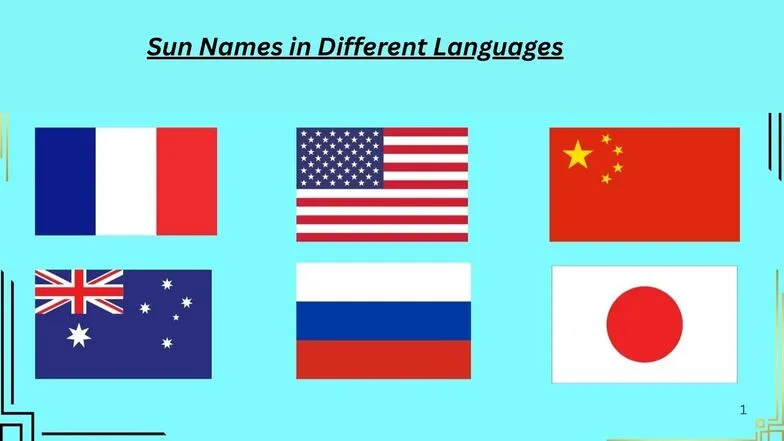The sun has been a source of light, life, and inspiration for humanity since the beginning of time. Many people search for sun names in different languages out of curiosity, cultural interest, or even for personal uses such as naming a project, a child, a brand, or simply learning new vocabulary.
If you’ve ever wondered how different cultures refer to this universal source of energy, this article will solve your problem. Here, you’ll discover how the word sun is expressed across the world, learn its meanings, and understand how to use these words when speaking or writing in another language.
Why People Search for Sun Names in Different Languages
Before jumping into the translations, it’s important to know the reasons behind this search:
- Language Learning: Learners want to expand vocabulary and improve conversations.
- Cultural Exploration: The sun holds symbolic meanings in mythology, religion, and tradition.
- Creative Naming: Writers, poets, and even businesses look for unique sun-related words.
- Travel & Communication: Travelers want to know simple words like “sun” to connect with locals.
By reading this blog, you’ll have a ready-to-use list of sun names in various languages and the context of how to use them.
Sun Names in Popular World Languages
Here are some of the most widely spoken languages and their word for “sun”:
- English – Sun ☀️
- Spanish – Sol
- French – Soleil
- German – Sonne
- Italian – Sole
- Portuguese – Sol
- Russian – Солнце (Solntse)
- Arabic – شمس (Shams)
- Hindi – सूरज (Sooraj)
- Chinese (Mandarin) – 太阳 (Tàiyáng)
- Japanese – 太陽 (Taiyō)
- Korean – 태양 (Taeyang)
- Turkish – Güneş
- Greek – Ήλιος (Ilios)
- Swahili – Jua
Sun Names in Ancient & Mythological Contexts
The sun isn’t just a scientific star — it’s a sacred symbol. Many ancient civilizations gave it divine names:
- Latin – Sol (also the Roman Sun God)
- Sanskrit – Surya (Hindu Sun God)
- Egyptian – Ra (the Sun God)
- Norse – Sól (the Sun goddess in mythology)
- Aztec – Tonatiuh
These names are still used today in literature, names, and spiritual practices.
How to Use Sun Words in Daily Conversation
Knowing how to say sun can be useful in casual talk, travel, or even creative writing. Some examples:
- In French, you can say: Le soleil brille aujourd’hui (“The sun is shining today”).
- In Spanish: El sol está muy fuerte (“The sun is very strong”).
- In Hindi: Aaj suraj tez hai (आज सूरज तेज है – “The sun is bright today”).
- In Arabic: Al-shams mushriqa (الشمس مشرقة – “The sun is shining”).
By learning these, you’ll not only know the word itself but also how to naturally use it in sentences.
Conclusion
Exploring sun names in different languages connects us with cultures, history, and everyday communication across the globe. Whether you’re a traveler, a student of languages, a writer looking for inspiration, or simply curious, knowing how the word sun is expressed around the world adds brightness to your vocabulary. Just like the sun itself, these words carry warmth and meaning in every language.



